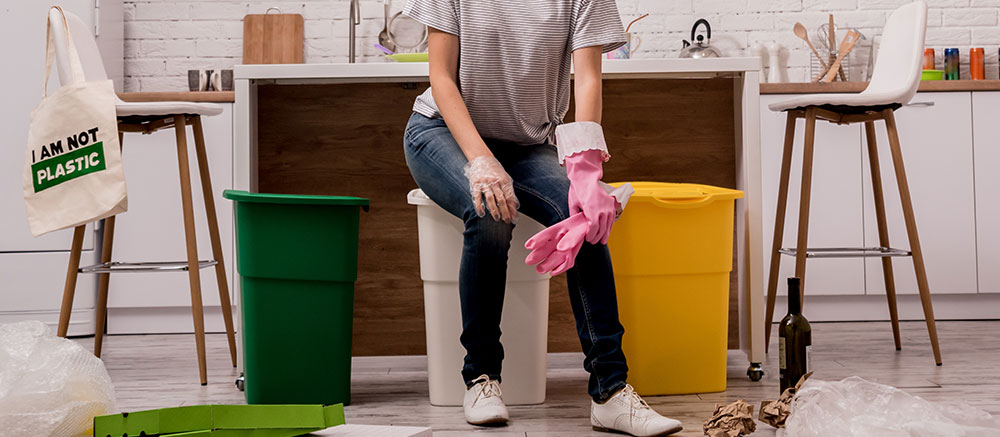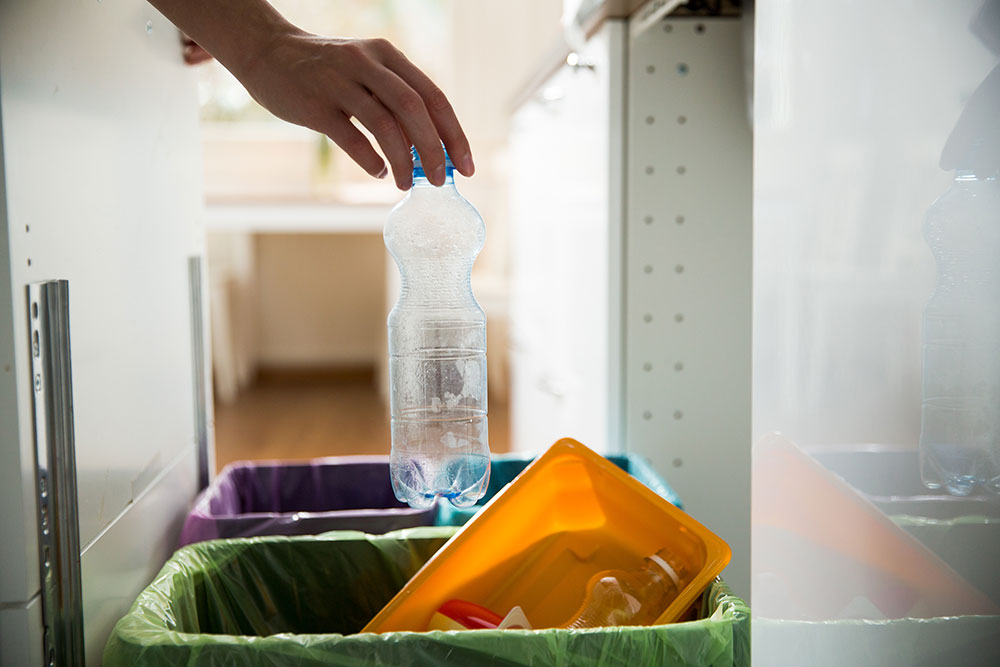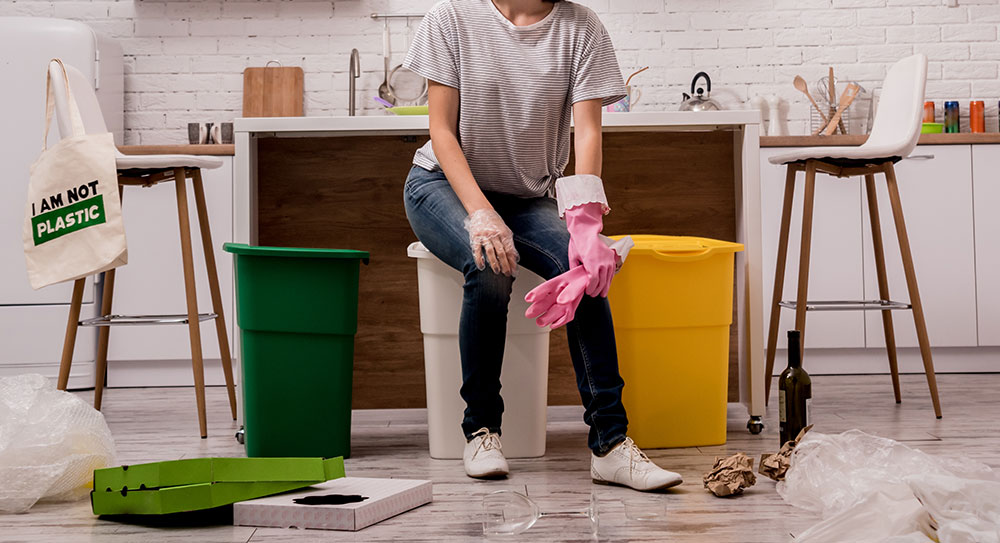
Best Ways To Reduce Waste in Your Home!
The world produces more than two billion tonnes of solid waste every year. At least 33% of this number is not managed properly, with most of them harming the environment. An average person generates at least 0.70 kg of waste every day, although it can differ significantly. The lowest is 0.11 kg, while the highest can be more than 4.50 kg.
According to the World Bank, the generation of waste around the world could increase by up to 70% by 2050. People need to act now before it is too late.
In the latest statistics, Australians create an average of 67 million tonnes of waste annually. It is an alarming rate, considering there are prohibitions in place, including bag and single-use plastic bans. Despite the national movement to solve the recycling crisis in the country, most of the waste generated ends up in landfills. Sometimes, they go overseas.
A lot of portion of the millions of tonnes produced comes from food and garden. These types of wastes quickly create methane in the environment and therefore contribute to greenhouse gases as they decompose. Another big problem is that most of the plastic waste goes to oceans and waterways.
Here at Backyard Bins, we are an advocate of saving the planet by reducing waste. As a homeowner, there are steps that you can take to contribute to lowering the percentage of household generation percentage. The following are some of the best ways to manage solid waste in your home:
- Waste Recycling
Waste management is not difficult. It is achievable, as long as you commit yourself to it. The problem is that many people are used to the luxury of throwing their things away. While it is convenient, it harms the planet gradually.Generating waste is a part of our life. Even if you avoid it as much as you can, you will still end up with at least one piece of rubbish every day. The best way for you to help is to recycle, so it does not go into the landfill.Participating in recycling programs can help. Australia has a National Waste Policy, which covers recommended recycling methods in the country. The Department of Environment and Energy assists households and businesses that focus on the use of recycled glass, rubber, paper, and plastics.But recycling is not easy to understand. In reality, many people do not even know what it means. Simply put, recycling is when you collect and process materials instead of throwing them directly to the bin.To take part in the recycling initiative of your community, here are some things that you can do:
- Reuse materials, such as plastic, paper, glass, and metal. Furniture pieces and even vehicles can be recycled as well.
- Purchase recyclable products, including those that come in glass jars.
- Support the recycling efforts of the community and specific companies.
- Stop using hazardous materials, including household cleaners. Try safer alternatives, particularly natural ones.
- Make sure that you are aware of where your recycling bins are. It helps if you hire a skip bin, especially if you have a renovation or construction project going on in your house.
Recycling can take place inside your home, the garden, and in the whole community.
- Purchase Eco-Friendly Products
Aside from recycling and repurposing items, you should also buy products that help the environment. The good news is that there are many choices available now. How do you determine a product is eco-friendly? Here are some questions to ask:- What materials were used in manufacturing the product?
- Is it made of recycled materials?
- Are there toxic substances?
- How much energy was wasted in the making (and delivering or operating) the product?
- Will it last for several years, or you need to replace it after a few months or less?
- When you discard the product, will it create pollution?
- Can you recycle some of its materials?
Before you purchase, it helps to know about the manufacturer first. Then, decide whether or not the product does not harm the environment when you use or consume it, as well as during disposal.
- Buy Smart
Quality over quantity may be an overused expression, but it counts when you are looking to help the environment. When you purchase high-quality items, they last for a long time. From clothing to toys to pans, they will not get worn out easily. Since they last longer, you do not have to buy a replacement for the next few years.Here are other ways that will allow you to achieve the purpose of being a smart buyer:- Avoid single-use products, including plastic straws and grocery bags. Stay away from water bottles and paper coffee cups as well. Even if they are “paper,” these cups are still lined with plastic. Most facilities will not accept them.
- Go for bigger packages, especially food. Instead of sachets and items of smaller quantities, buying big will help reduce packaging waste. An example is buying a large box of cereal. While smaller boxes are much cheaper, you end up with at least three more in the bin.
- Take your lunch with you, rather than take-away. Have a reusable snack bag and lunchbox to make it more convenient.
- When shopping for food, buy from bulk bins or farms. You can also visit a farmer’s market in your area or opt for a produce stand. The items here are all fresh and unpackaged, which helps in combating extra waste production. A huge plus is that the food is cheaper.
- Bring your own shopping bag.
- Stop eating processed foods. Not only are they bad for your health, but they also cause problems in the environment. You can make your own yogurt, ice cream, and soup without these packaged foods.
If you are subscribed to a newspaper or magazine, it is time to cancel them. Read the publications online instead. Paper books also contribute to waste, so it would be better to choose eBooks instead.
- Use Environment-Friendly Packaging
Being a smart buyer means that you have to consider the packaging of the products as well. Here are some ways to avoid harming the environment with how the items are packaged:- Buy honey, maple syrup, and pickled vegetables in jars. This way, you can reuse them.
- Choose milk or other drinks in reusable glass bottles. You can even find stores that give you some cashback if you return the bottle.
- You can return egg or berry cartons to farmers’ market vendors.
- Avoid bottled water. Carry a reusable water bottle with you whenever you are outdoors. A common misconception of some people is that bottled water is cleaner than tap water. In reality, tap water has much stricter rules in Australia. It is regularly tested for chemicals and other components to ensure the safety of drinkers.
- Whether you are buying wet or dry food, go for options with less packaging. Wet food may be in jars and reusable bottles. As for dry food, you can bring your own bag and put the items there.
- Avoid products with aluminium foil, wraps, and plastics. Choose those that provide reusable containers so that they can double as food storage as well.
If you are wondering if paper is better than plastic, the answer is no. Always carry a reusable bag with you to do your part in reducing the need for environment-harming packaging.
- Decrease in Waste Production
When something is broken, do not throw it in the bin just yet. For instance, old shoes can be repaired when the sole comes off. If the TV has minor problems, have someone fix it, instead of buying a new one. Also, repairs are much cheaper.Here are more ways on how you can reduce the amount of waste your household can produce:
- Choose reusable batteries and other items, such as plates, straws, and shopping bags.
- Opt for refillable items. Some companies let you return the packaging so that you can get a new one, along with the product.
- Buy less and infrequently. We all have that moment in our lives when we purchase things we do not need. As a result, these items just pile up in our homes. Some people end up throwing them out without even using them. Before you buy something, ask yourself several times if you need it. More often than not, the real answer is “No.”
- If you have clothes you no longer need, do not throw them away. Use them as rags for wiping surfaces and keeping your home clean. This way, you do not have to use paper towels again.
- Old items that you do not need can be donated. For instance, books and magazines can go to libraries or schools in your area. Toys that your kids do not play with anymore can be given to other children. You can also hold a yard sale to get rid of things you no longer need, rather than throwing them away.
If you have other items that you do not know how to dispose of, hire a skip bin. You will get guidance on what you can and cannot put in the container. Contact Backyard Bins for more information.
Backyard Bins Team
“ [rcblock id="2165"]”

 When something is broken, do not throw it in the bin just yet. For instance, old shoes can be repaired when the sole comes off. If the TV has minor problems, have someone fix it, instead of buying a new one. Also, repairs are much cheaper.Here are more ways on how you can reduce the amount of waste your household can produce:
When something is broken, do not throw it in the bin just yet. For instance, old shoes can be repaired when the sole comes off. If the TV has minor problems, have someone fix it, instead of buying a new one. Also, repairs are much cheaper.Here are more ways on how you can reduce the amount of waste your household can produce: